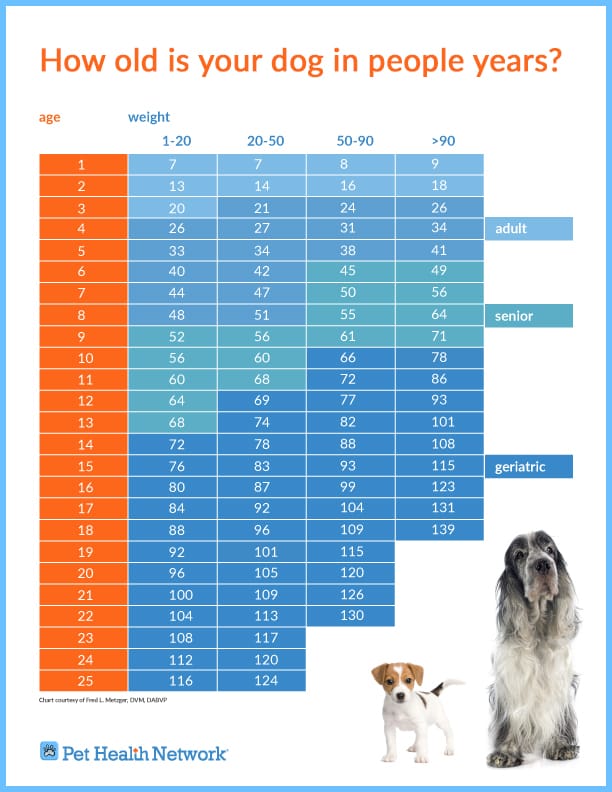As our beloved canine companions enter their golden years, understanding the nuances of aging is crucial for providing them with the best possible care. While we often estimate a dog’s senior status around seven years old, the reality is more complex, varying significantly based on breed and size. This guide delves into the signs of aging, how to determine when your dog enters their senior years, and essential care tips for this important life stage.
Understanding Canine Seniority: Beyond a Fixed Age
The transition from adulthood to seniorhood in dogs isn’t marked by a single, definitive age. Instead, it’s a gradual process influenced by genetics and physical characteristics. While many owners associate senior status with the age of seven, dogs can be considered seniors anywhere between five and twelve years old. This variability underscores the importance of observing your individual dog’s health and behavior rather than relying solely on age.
Age and Breed: A Closer Look at Senior Dog Stages
Generally, dogs mature through distinct life stages: puppyhood lasts until about six months to one year, followed by adulthood. The senior stage typically begins when a dog enters the last quarter to one-third of their expected lifespan.
Small Dogs: A Slower Aging Process
Dogs weighing under 20 pounds often reach physical maturity by six to eight months but tend to age more slowly afterward. With lifespans that can extend to around 16 years, small breeds might not be considered seniors until they are 12 years old. However, exceptions exist; some small breeds, like Cavalier King Charles Spaniels, have shorter lifespans and may be considered senior as early as eight years old.
Large Dogs: Entering Seniority Sooner
Larger breeds generally have shorter lifespans, meaning they enter their senior years earlier. For instance, a Labrador, with an average lifespan of about 12 years, would typically be considered a senior between eight and nine years old. Giant breeds, such as the Bernese Mountain Dog, have even shorter life expectancies, often living six to eight years, making them seniors around four to five years old.
Recognizing the Signs of an Aging Dog
Identifying the signs of aging in your dog is key to adapting their care. As dogs enter their senior years, you might observe:
- Stiffness: Limbs may feel stiff, especially in the mornings, often an indicator of arthritis.
- Behavioral Changes: Increased impatience, particularly with younger, more energetic dogs, can be a sign.
- Physical Changes: Graying fur around the muzzle is a common visual cue.
- Decreased Activity: A general slowdown in movement and playfulness.
- Cognitive Decline: Signs such as disrupted sleep patterns, loss of smell, increased nighttime activity, and anxiety can indicate canine cognitive dysfunction.
Essential Care for Senior Dogs
Providing diligent care from both owners and veterinarians can help senior dogs remain active and comfortable. Key aspects include:
Regular Veterinary Check-ups
Senior dogs are more susceptible to diseases like osteoarthritis and cancer. Their health status can also change rapidly. Annual veterinary exams are essential, and your vet may recommend more frequent check-ups. Early detection of diseases significantly improves the chances of effective management and maintaining a good quality of life.
Optimal Nutrition
As dogs slow down, obesity can become a concern, exacerbating arthritis pain and reducing lifespan. Consult your veterinarian to determine your dog’s ideal weight and dietary needs.
Tailored Exercise and Mental Stimulation
While activity levels may decrease, regular exercise is still vital for maintaining joint health and flexibility. Allow your dog to guide their exercise routine, exploring different activities to find what they enjoy. Training and cognitive exercises, such as puzzle feeders or learning new tricks, are also crucial for keeping their minds sharp.
At Falls Road Animal Hospital, our veterinarians are experienced in assessing the health of senior dogs and providing guidance on aging, exercise, and nutrition. If you have questions about your geriatric dog’s health or need to schedule an exam, contact our Baltimore vets today.
Note: The information provided in this post is for informational purposes only and does not constitute medical advice. Please consult your veterinarian for an accurate diagnosis and treatment plan for your pet.

